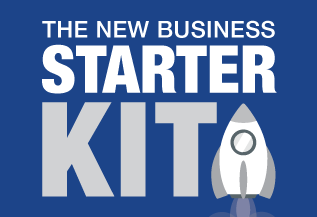Business And Commercial Lending
Finance For My Business
Before you start to decide on finance products and options, it’s a great idea to pin down exactly why you need finance. This helps you to create clear objectives that can help paint a clear picture to lenders about why finance for your business makes sense.
Why Do You Need Finance?
Why do you need the finance and what are you looking to fund? There are so many reasons a business needs finance, and there’s often a different product for every single one. But most of them fall into these general areas.
- You want to expand - It’s not all about bigger premises, a new property or a revamp, it can be for new equipment or staff, maybe a marketing campaign to drive more sales, or diversifying your offering.
- Putting stock on the floor - If you’re about to have a busy period, you need enough inventory, so you’ll need to buy it before you can sell it and generate the income. The right finance will ensure you’re ready.
- Keeping up cash flow - It’s more than simply a cash injection, you might get finance for equipment or inventory to preserve the funds you already have in the bank. You can even get finance based on the invoices you’ve already sent to clients.
- Brand new equipment - Equipment or vehicle loans can help preserve cash flow while also helping to generate new income with a new asset. There are also possible tax benefits, and lenders often consider the asset as the collateral, so you don’t need to secure it against any personal property.
- Time to refinance - Your business and its needs change, and so do the finance products the lenders are offering. So it can never hurt to consider finding a more suitable loan, or a better deal.
Business Loan Types
Because the needs of each individual business are so varied, there are many types to choose from. All of them have pros and cons. What might be right for one business may not fit the unique needs of another. It’s important you find the right one for you, both short and long-term.
Asset & Equipment Finance
It’s a common question for small business owners; how do you get your hands on the equipment you need to grow, while still keeping the all-important cash flow and working capital at healthy levels?
Choosing the right asset and equipment finance can give you further benefit than just preserving your day-to-day funds:
- Assets and equipment can generate immediate income
- Finance can help preserve working capital
- Fixed repayments may give you the ability to budget more accurately
- The asset secures the loan, in which case you don’t have to lock up your property security which can be preserved for future finance such as working capital
- There may be potential tax advantages to consider
What can be financed?
Any asset, plant or equipment that can help generate income for your business may be able to be financed, and can include:
- Motor vehicles
- Commercial vehicles
- Plant and machinery
- Agricultural equipment
- Solar power equipment
- Computers, photocopiers and phone systems
- Medical and dental equipment
- Office equipment
- General business equipment
- Internal fit-outs
Invoice Finance or Accounts Receivable
Looking for an effective way of unlocking cash that’s already been invoiced to your clients?
Sometimes called Invoice Finance, Debtor Finance or Accounts Receivable Finance, this is like a cash advance based on the sales you’ve already made to your customers, without having to wait for the traditional 30, 60 or even 90 day payment periods.
In simple terms, a lender considers the invoices or monies you have owing as an asset. They’ll lend you a percentage of the money that’s owed to you, then pay you the remaining balance once they’ve collected the invoice, less a small percentage.
This type of financing is a relatively quick and flexible way for your business to maintain cash flow, and can have many benefits when
compared to other bank loans or lines of credit.
Working Capital Finance
Working Capital Finance is a business loan that can help you take care of your immediate and day-to-day costs.
Like the name suggests, having this type of financing means you have the capital to cover vital operating costs like paying suppliers, covering wages or adding inventory to make the most of busier business periods.
Importantly, it also means you can have funds at hand when you need them to create growth and make the most of any opportunities when they
happen.
Term Loans
Terms loans are commonly used to buy commercial real estate, or to buy an existing business or franchise.
If you’re familiar with home loans, you’ll understand the principles of how a term loan works. Generally speaking, this type of loan can be used for two purposes – business or property.
Business purposes includes buying a trading business or franchise, a new business start-up or the expansion of an existing business.
The types of commercial real estate purchased encompasses a very broad spectrum. The types of real estate include established, vacant or to
be developed land; owner occupied or investment; and zoned from retail, industrial, office, warehouse, factory unit, to specialised property
such as aged care facilities, or hotels and taverns.
Self Managed Super Fund Loan
Have you considered using the funds in your Self Managed Super Fund to invest in commercial property?
The savings you’ve built up in your Superannuation Fund can be used to make investments in a range of asset classes. By transferring your super to a new or established Self Managed Superannuation Fund (SMSF) the opportunity to use gearing to purchase property may become available.
Using your SMSF funds as a deposit, some lenders will approve loans starting at just $100,000 to purchase property, and the income generated from the rental can help meet your repayments.
With commercial property, it may be possible for your SMSF to purchase a property that will be occupied by your business, as long as the rent is at market rates.
Essentially this type of finance is a Term Loan with features such as flexible terms up to 30 years, the choice of principal and interest or interest only repayment, and the options of fixed or variable rates, or a combination of both.
There are many rules and regulations governing your SMSF so it’s important you get the advice of a financial professional, like your
accountant or financial planner to assist you to make the right choices.
Unsecured Business Loans
A faster way to access finance for everyday expenses.
Unsecured business loans are a relatively new option for businesses that need to get access to some extra funds. The obvious benefits of this type of finance is the speed in which access is granted to the finance, with simplified application process. This may allow you to quickly take care of cash flow, cover urgent expenses, or make the most of an opportunity.
In recent years, a number of agile, financial technology (fintech) lenders have entered the finance market in Australia. These more non-traditional lenders can turn around approvals and deposit cash into your account in as little as 24 hours. Because they are unsecured the application is simpler and the loan amounts are often smaller – usually anywhere from $5,000 to $250,000. It also means there is greater risk to the lender so the interest rates may be relatively higher and the loan terms a lot shorter, with principal and interest repayments generally on a weekly basis but sometimes even daily.
While the access to funds can be handy, it’s important to weigh up the repayment terms and amounts to make sure this short-term cash injection helps your business over the short and medium-term.
We’re here to help you
Dealing with banks can be a stressful experience but rest assured that our mortgage broker based in Glenelg (but our mortgage broker services the entire Adelaide Metropolitan area) can help you make the right decision about your mortgage. We will guide you at every stage of your loan process.
Contact us on 08 8376 0455 or drop into our office at 593 Anzac Highway, Glenelg SA 5045.
Any advice contained in this article is of a general nature only and does not take into account the objectives, financial situation or needs of any particular person. Therefore, before making any decision, you should consider the appropriateness of the advice with regard to those matters. Information in this article is correct as of the date of publication and is subject to change.














